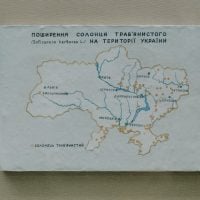Deadline: 31-Jan-23
The Earth Journalism Network (EJN) is now accepting proposals for the 2023 Asia-Pacific Media Grants program.
This round of grants is awarded as part of the Earth Journalism Network’s Asia-Pacific project, which aims to boost the quantity and quality of environmental coverage in the region and empower at-risk communities by informing them about environmental issues and amplifying their voices in the media. This project has received generous financial support from the Swedish International Development Cooperation Agency (Sida).
Objectives
Proposed activities should contribute to the following objectives:
- Strengthen the capacity of journalists and media organizations to produce high-quality, evidence-based and engaging environmental stories on the consequences of human impacts on the environment and viable solutions to mitigate and respond to these impacts.
- Increase high-quality content and media coverage on key environmental themes to focus public attention on the interdependence of the health and well-being of humans, and their environments.
- Increase public attention to the disproportionate impacts of environmental degradation on women, the poor, youth, indigenous peoples, and other vulnerable groups and increase their access to high-quality, publicly available environmental information.
- Contribute to positive changes in government policies, businesses environmental standards or consumer habits for a more sustainable way of life.
Project Themes
- In this round of media grants, they are seeking innovative ideas from journalist networks, media organizations, civil society organizations and academic institutions throughout Asia and the Pacific that would strengthen public awareness of the interconnection of human, animal and environmental health, and the need for collaborative and multidisciplinary solutions to humanity’s biggest threats.
- Examples of activities that can be supported include, but are not limited to:
- An environmental reporting project that highlights the interdependence of the health and well-being of humans, animals, and their environments. Examples of themes include intensive food production, climate change, heavy metal contamination, antimicrobial resistance, pesticide poisoning and pollution, biodiversity loss, wildlife trafficking, natural resources management, and large-scale infrastructure development.
- Transboundary reporting projects and content sharing among media outlets based in different localities or countries.
- Cross-sectoral collaborations and knowledge exchange between journalists, information providers and other key actors, such as researchers and governmental bodies.
- Partnerships and network building for environmental reporting, such as the formation of an environmental journalists’ network or an investigative environmental reporting partnership.
- Innovative tools to support media investigation into environmental threats and the distribution of environmental stories.
- Institutional capacity building activities that build skills and knowledge on topics, such as but not limited to, financial reporting, monitoring and evaluation, gender inclusion, and in-person or virtual activities that support environmental reporting.
Funding Information
- This grant fund has US$120,000 available for awards this year, which would ideally be shared among six to eight projects. The grant amount can range between US$5,000 to US$20,000 depending on the scope of the proposed activities.
- Projects should be completed within 12 months.
Eligibility Criteria
- Media organizations, journalist networks, universities and academic institutions focusing on environmental reporting in the Asia and Pacific region are welcome to apply. Civil society organizations, community-based groups and research institutes will also be considered – but only those with strong media and communication components that are dedicated to supporting fair and accurate environmental reporting. Please note that they will not consider applications rooted in advocacy or political campaigning.
- For the purpose of this call, they are only accepting applications from low-and-middle-income countries in the Asia-Pacific region. They are unfortunately, unable to accept applications from Pakistan, and Central Asian or Middle Eastern countries. Examples of eligible activities include but are not limited to:
- Training workshops;
- Development of reporters’ resources and e-learning tools;
- Development of new digital tools;
- Story grants for journalists;
- Mentoring of journalists;
- Special reporting projects;
- Networking and partnership activities for journalists;
- Development of new storytelling platforms;
- Establishment of a journalist network.
Judging Criteria
- Grants will be awarded competitively through a judging process. The panel of judges will consist of Internews staff and experts in environmental reporting. Following a first-round review, potential grantees will be shortlisted. The jury may interview shortlisted applicants to seek further information on the proposed activity. The jury will then reconvene again after the interviews to make a final selection of the grantees.
- The jury evaluates all eligible applications in a comparative context and makes funding decisions based on the availability of funds, the program objectives, and the following assessment criteria:
- overall quality of the proposal and effectiveness of the project design;
- relevance of the proposed project in contributing to the objectives and priorities of this grant program;
- potential of proposed project to bring about positive change;
- innovation of the proposed activities;
- financial viability and cost-effectiveness of the proposed project;
- the ability of the applicant to carry it out;
- geographical spread of the grantees.
For more information, visit EJN.









































